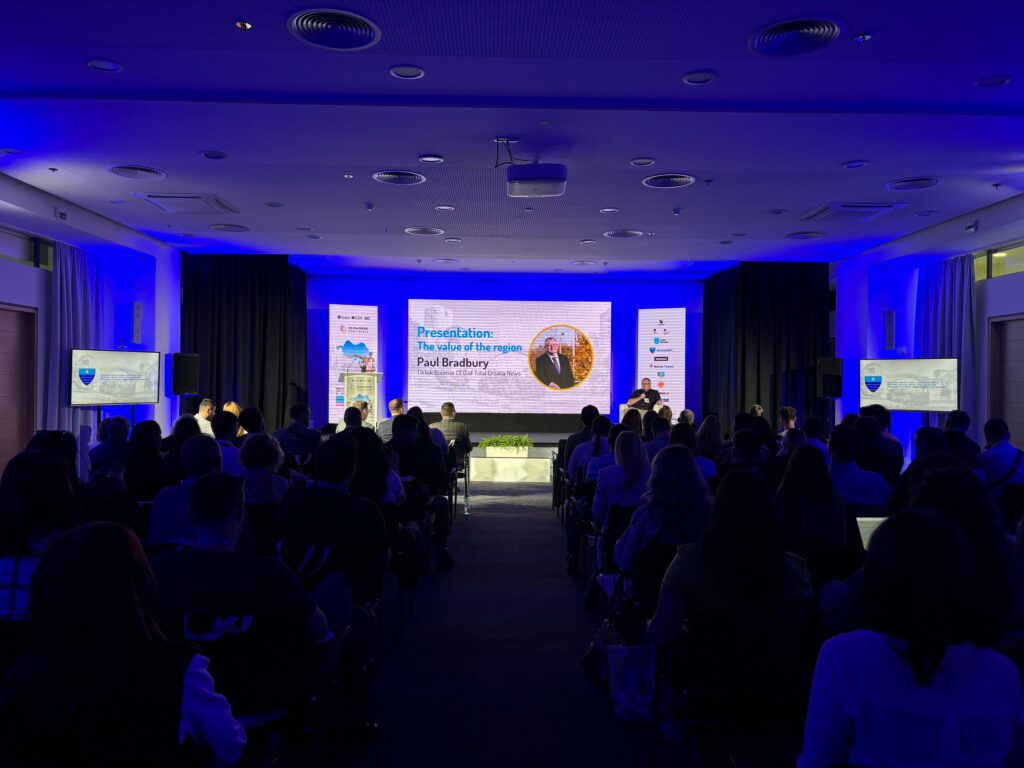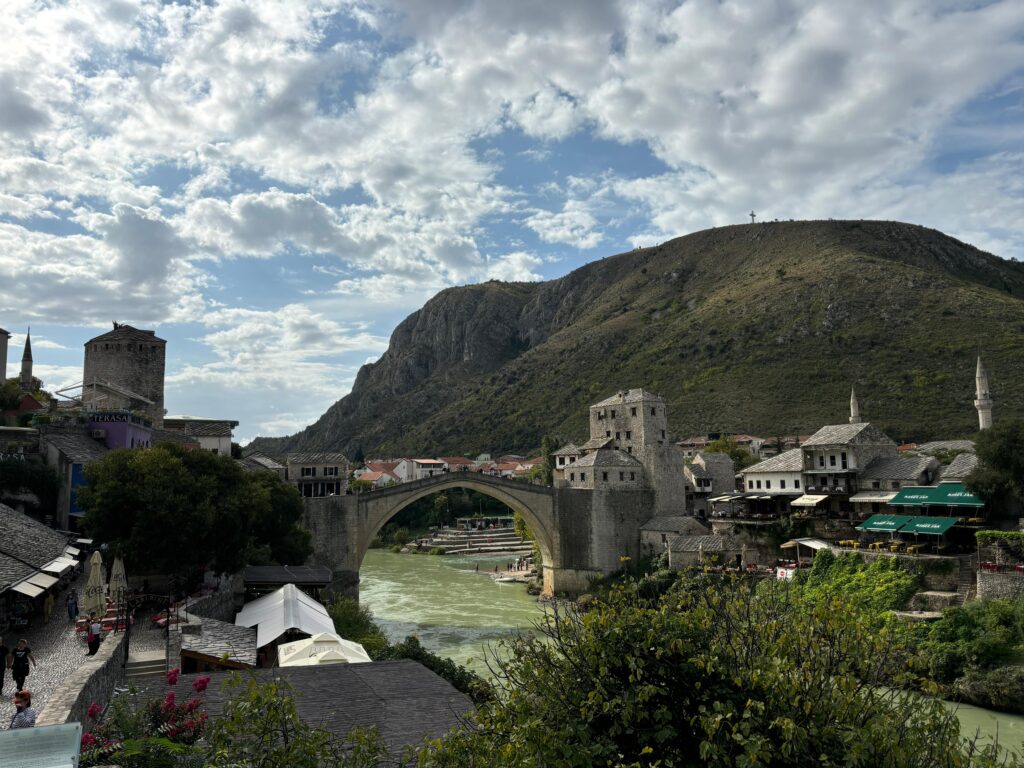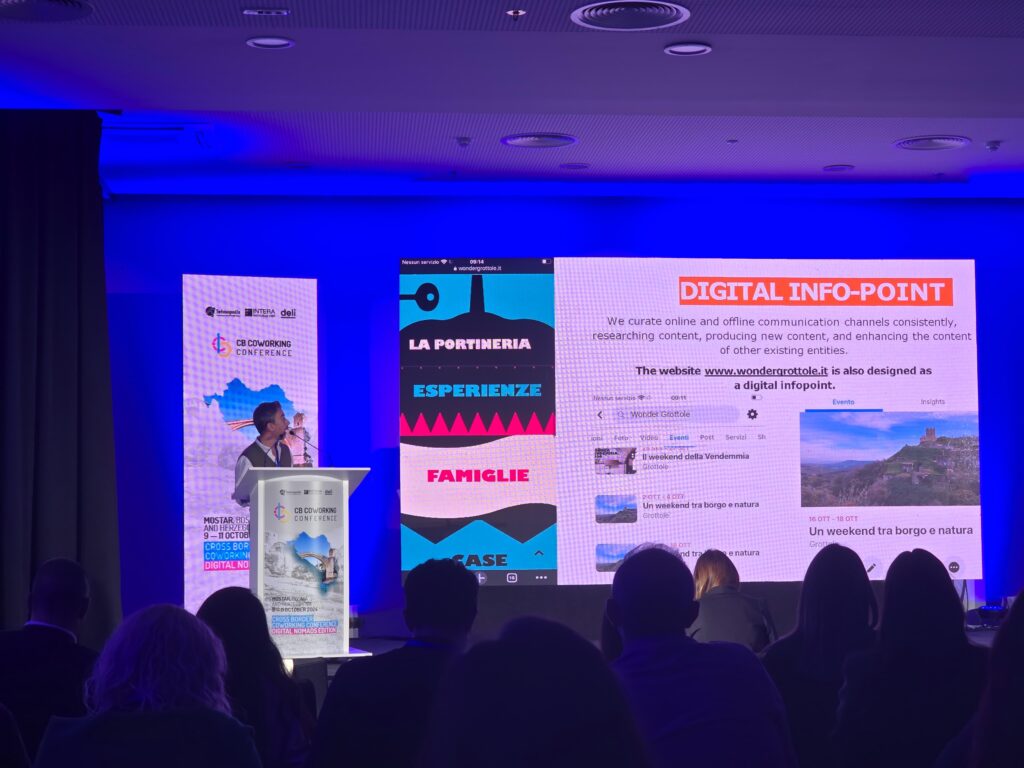Recently we had the pleasure to join the Balkan Digital Nomad Conference - Cross Border Coworking Conference in Mostar, in Bosnia and Herzegovina. The event offered a unique glimpse into the evolving landscape of remotework and the digitalnomad lifestyle, with attendees, including renowned speakers Paul Bradbury, Nora Dunn, and Niluka Kavanagh, who shared valuable insights and perspectives on the future of work.

Key Trends and Predictions
One of the recurring themes throughout the conference was the growing popularity of the Balkans as a destination for digital nomads. Paul Bradbury highlighted the region's unique blend of affordability, visa-friendly policies, and cultural richness, making it an attractive option for those seeking a new way of working and living.
Nora Dunn, a seasoned digital nomad, emphasized the importance of flexibility, community, and a focus on meaningful experiences. She stressed the need to redefine traditional notions of work-life balance and embrace a more nomadic lifestyle.
Niluka Karanagh introduced the concept of #destinationfreedom, highlighting the ability of digital nomads to choose where they work based on their personal preferences and lifestyle goals. She also discussed the challenges and opportunities associated with maintaining motivation and connection while working remotely.

The Impact of Digital Nomadism
The conference also explored the potential impact of digital nomadism on local economies and communities. By attracting skilled professionals and entrepreneurs, digital nomads can contribute to economic growth and innovation. However, it's essential to ensure that the influx of digital nomads doesn't lead to gentrification or displacement of local residents.
Recommendations and Future Outlook
Based on the insights gained from the conference, here are some recommendations for individuals and organizations looking to embrace the digital nomad lifestyle or support its growth:
- Invest in digital nomad-friendly infrastructure: This includes high-speed internet, coworking spaces, and affordable housing.
- Foster a welcoming and inclusive community: Encourage local businesses and residents to interact with digital nomads and create a sense of belonging.
- Promote sustainable tourism: Encourage digital nomads to explore local attractions and support sustainable practices.
- Continue to research and analyze the impact of digital nomadism: Gather data on the economic and social benefits of digital nomads to inform policy decisions.
Reflections and future vision
Andrea Paoletti, Co-Founder of Casa Netural Coliving and speaker at the conference, shared our experiences and vision for the future of digital nomadism and rural revitalization. Our journey began in 2010 with the creation of a rural coworking space, Casa Netural followed by a coliving project www.benetural.com/en/coliving and the ambitious Wonder Grottole www.wondergrottole.it experiment to revitalize a tiny village in southern Italy.
Currently, we are focused on developing a school for #villagehosts https://www.villagehosts.eu/ to empower local communities and promote sustainable tourism.
These experiences have taught us the immense potential of #digitalnomadism to drive #economicdevelopment and revitalize #ruralareas. By providing opportunities for remote work, fostering community, and promoting sustainable practices, we can create a more equitable and resilient future for all.

